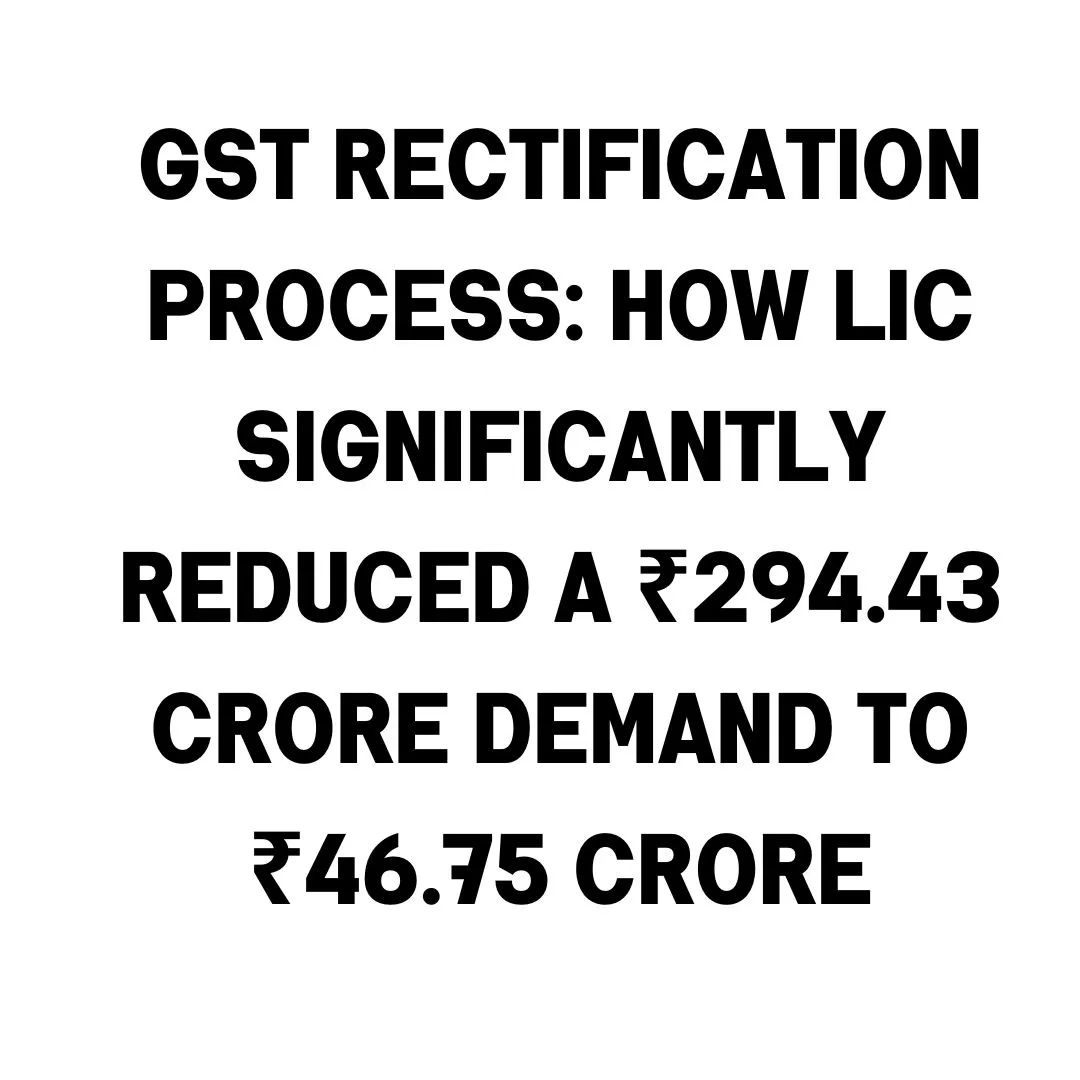GST Rectification Process: The GST Rectification process is a pivotal mechanism for businesses to address inaccuracies and disputes in their tax assessments. A recent case involving the Life Insurance Corporation of India (LIC) demonstrates the substantial relief that can be achieved through this process. LIC successfully reduced a substantial GST demand of ₹294.43 crore to ₹46.75 crore following a rectification hearing. This article examines the intricacies of the case, the rectification process, and its broader implications for enterprises.
The Background of LIC’s GST Demand Issue
In August 2024, LIC was issued a GST demand order by the Deputy Commissioner of State Tax in Mumbai. The order encompassed:
- Tax liability for FY 2019-20 amounting to ₹294.43 crore
- Allegations of wrongful Input Tax Credit (ITC) claims and delayed payments
- Components of the demand including tax, interest, and penalty
The magnitude of this demand prompted LIC to request a rectification hearing under GST regulations.
Understanding GST Rectification
GST Rectification permits businesses to seek corrections in tax assessments due to evident errors or discrepancies. Governed by Section 161 of the CGST Act, 2017, the process allows for the rectification of mistakes within a specified timeframe.
Conditions for Requesting Rectification
- Clerical or arithmetic errors in tax orders
- Incorrect application of tax laws
- Discrepancies in Input Tax Credit claims
LIC’s Rectification Process
On November 14, 2024, a rectification hearing was conducted before the Commissioner of GST, Maharashtra State. After considering LIC’s submission and conducting a thorough review, the following revised liabilities were determined:
| Component | Original Demand | Revised Demand | Reduction |
|---|---|---|---|
| GST | ₹294.43 crore | ₹46.75 crore | ~84% |
| Interest | ₹XX (original) | ₹23.58 crore | – |
| Penalty | ₹XX (original) | ₹4.67 crore | – |
This rectification resulted in a significant reduction in LIC’s financial obligations, illustrating the effective application of GST provisions.
Key Lessons from LIC’s Experience
- Ensuring Accurate ITC Claims
LIC’s original demand stemmed largely from wrongful Input Tax Credit (ITC) claims. It is imperative for businesses to ensure that ITC claims are:
- Supported by valid invoices
- In compliance with GST regulations
- The Importance of Timely Action
Prompt filing for rectification following receipt of a tax order can alleviate financial strain. LIC’s swift action ensured that its appeal was heard and processed without unnecessary delays.
- Reduction of Interest and Penalty
The rectification process also facilitated notable reductions in interest and penalty charges, offering further financial relief to LIC.
Guidelines for Avoiding GST Disputes
For business operators, adherence to the following practices can enhance GST compliance:
- Regular Reconciliation of GST Returns: Ensure alignment between filed returns and financial records.
- Monitoring ITC Eligibility: Verify that claimed ITC adheres to GST regulations to prevent disputes.
- Adherence to Deadlines: Timely filing of returns and payment of GST dues minimizes penalties and interest.
- Consulting Professional Advisors: Seek expert guidance for optimal GST management and compliance.
The Importance of Rectification for Enterprises
LIC’s case underscores the significance of rectification hearings in addressing legitimate errors in tax assessments. The GST framework enables businesses to contest unfounded demands, thereby alleviating financial pressure and ensuring adherence to legal standards.
Conclusion
LIC’s experience serves as an instructive example for businesses encountering GST disputes. By leveraging the rectification process, LIC not only achieved a substantial reduction in its tax liability but also underscored the importance of compliance and prompt response.
For businesses, this case highlights the necessity of robust tax practices, regular audits, and a comprehensive understanding of GST legislation. The rectification process functions not merely as a corrective tool but as a safeguard ensuring equitable treatment under the law.



